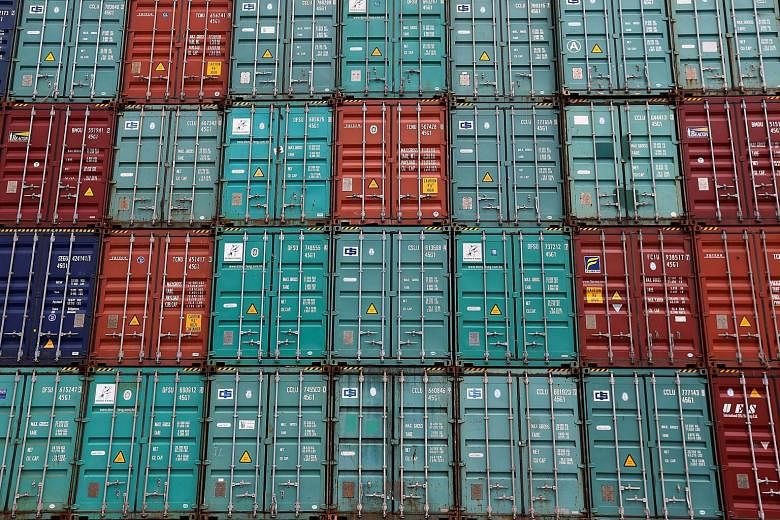SINGAPORE - Prospects are still good for United States businesses in South-east Asia, according to a poll of 317 senior executives active in the region - although sentiment has softened somewhat.
Slashing non-tariff barriers to trade weighed heavily on respondents' minds, following US President Donald Trump's decision to exit the Trans-Pacific Partnership.
But they were largely unsure about what the Regional Comprehensive Economic Partnership (RCEP) alternative, which excludes the US, could mean for them.
Results of the survey from the US Chamber of Commerce and the American Chamber of Commerce in Singapore (AmCham Singapore), released on Tuesday (Sept 11), found a solid 80 per cent of respondents saying that level of trade and investment in Asean is expected to increase over the next five years, while 17 per cent thought it would stay unchanged.
This compares with 87 per cent who felt upbeat about business in 2016 and 11 per cent who anticipated the level of trade and investment to remain roughly the same.
AmCham governor Elizabeth Hernandez told the audience that this could reflect concerns about general challenges to business globally.
US Chamber of Commerce senior vice-president for Asia Tami Overby said in a media release that the latest Asean Business Outlook Survey drives home the importance of Asean to US jobs and economic growth.
"It is also a fact that if US policy does not support deeper engagement by US companies in this part of the world, it will be left behind - particularly small and medium-sized US exporters," said Ms Overby.
"If we want to support US economic growth, we need to make new trade deals in Asia, not pull out of them."
US-Asean trade was valued at US$230 billion (S$309.6 billion) in 2016, with a quarter of US regional trade in goods going to Singapore.
The two countries inked a bilateral free trade agreement in 2004.
American businesses expressed fears over losing out amid the rise of China, the world's second-largest economy.
Many respondents - 48 per cent across Asean - expect stronger ties between the Beijing and their countries of operation after the US' TPP withdrawal.
They were unclear on what the RCEP would mean for them, with just 26 per cent thinking it would benefit their businesses as much as they thought the TPP might have.
Another 48 per cent said they were not sure.
Mr Trump's backing out of the deal put non-tariff trade barriers as the second-highest priority on businessmen's wish list for the Asean Economic Community, up from fourth place in 2016, as 61 per cent of respondents said it would make the region a more attractive place for their companies to do business.


